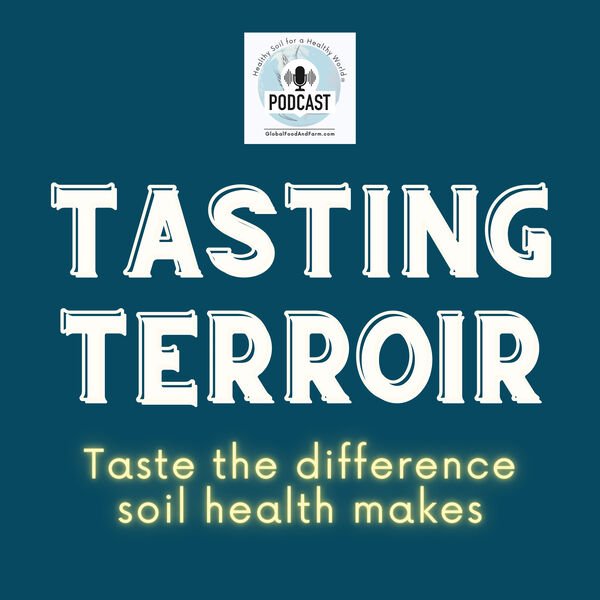
Nutrient Density Resources
For Farmers & Ranchers

For farmers and ranchers on the regenerative pathway, find reports and research from the field with current news, science, podcasts, and more.
See what John Deere and Successful Farming have to say about nutrient density in the articles below:
The article published by John Deere explores the argument that certain farming practices have led to a decline in nutrient content in crops over the years. They highlight the importance of soil health, crop rotation, and precision farming techniques in maintaining and enhancing nutrient density. The article can offer insights related to nutrient density and farming techniques to help farmers and ranchers implementing regenerative practices optimize nutrient content in crops and improve the long-term viability of their farming operations.
The article published on Successful Farming emphasizes the interconnectedness between soil health and human well-being. It highlights how healthy soils contribute to better food quality, nutrient density, and overall human health. They discuss the role of soil microorganisms, organic matter, and nutrient availability in fostering healthy crops and reducing the need for chemical inputs. It concludes by emphasizing the importance of farming practices that prioritize soil health to ensure a healthier environment and food system for future generations.
Regenerative Ag is More Profitable for Farmers
-

Report: A practitioner’s guide to conducting budget analyses for conservation agriculture
-

Report: Farm Finance and Conservation
-

Article: How conservation delivers value on the farm and beyond
-

Infographic: Economics of Soil Health Systems in Midwest Corn and Soy
-

Article: Make Your Farm Resilient and More Profitable with Regenerative Agriculture
-

Study: Regenerative agriculture: merging farming and natural resource conservation profitably
PODCASTS
BOOKS
EFFORTS WE FOLLOW IN THE REGENERATIVE & NUTRITION SPACE
-
Regenerative Healthcare European Association (RHEA)
The Regenerative Healthcare European Association (RHEA) raises awareness about the connection between regenerative agriculture, agroecology, and healthcare, improving the health of people and ecosystems.
-
Periodic Table of Food Initiative (PTFI)
The Periodic Table of Food Initiative (PTFI) is a global effort to provide data-driven solutions to transform food systems for improved human and planetary health. PTFI provides standardized tools, data, and training to map food quality of the world’s edible biodiversity.
-
Soil to Society
The goals of Soil to Society are to create more nutritious, affordable, and accessible whole grain-based foods through the investigation of the contribution of novel, biofortified crop varieties and food products to human health through clinical and epidemiological evaluations, and the development and deployment of nutritious food products made from improved crop varieties grown within sustainable cropping systems.
-
Mary Purdy's Resources & References
Mary has compiled 100's of scholarly reference papers and articles on the connections between Sustainable and Regenerative Farming Practices, Nutrition and Human Health
-
Center for Regenerative Agriculture and Resilient Systems (CRARS)
The Center for Regenerative Agriculture and Resilient Systems (CRARS) aims to investigate, develop, demonstrate, and educate about comprehensive, regenerative practices that both restore and enhance the resiliency of living systems and communities.
-
Regen Brands
They focus on advancing CPG brands that regenerate life as an insights engine, a trade association, and a brand capitalization advisor.
-
Investing in Regenerative Agriculture and Food
They are a podcast show that talks to the pioneers in the regenerative food and agriculture space to learn more on how to put money to work to regenerate soil, people, local communities and ecosystems while making an appropriate and fair return.
-
Intertribal Agriculture Council (IAC)
Their mission is to pursue and promote the conservation, development, and sustainable use of agricultural resources for the betterment of their people.
UNITED NATIONS FOOD & AGRICULTURE ORG RESOURCES
Nutrition-sensitive agriculture and food systems in practice Options for intervention
The report "Nutrition-Sensitive Agriculture and Food Systems in Practice: Options for Intervention" by the FAO provides a detailed guide on integrating nutrition into agriculture and food systems to improve public health outcomes. It highlights various strategies and interventions that can be implemented at different stages of the food system, from production to consumption, to enhance the nutritional quality of diets. The report emphasizes the importance of multisectoral collaboration, policy support, and the adaptation of interventions to local contexts. It also includes case studies and practical examples to illustrate how nutrition-sensitive approaches can be effectively integrated into agricultural practices and food systems.
Status of the World’s Soil Resources
The report "Status of the World’s Soil Resources" by the FAO provides an extensive assessment of global soil health, highlighting the critical role soils play in sustaining agriculture, biodiversity, and ecosystems. It identifies major threats to soil health, including erosion, nutrient depletion, pollution, and climate change, and documents the alarming rate of soil degradation worldwide. The report emphasizes the need for urgent action to protect and restore soils, advocating for sustainable land management practices and international cooperation. It underscores that maintaining healthy soils is essential for food security, environmental sustainability, and the overall well-being of humanity.
Soils for Nutrition: State of the Art
The FAO report "Soils for Nutrition: State of the Art" explores the intricate connection between soil health and human nutrition, emphasizing how the nutrient content of soils directly influences the nutritional quality of the food we consume. The report reviews current knowledge on soil nutrient management, highlighting the importance of maintaining soil fertility to combat malnutrition and improve public health. It calls for greater focus on soil management practices that enhance nutrient availability in crops, advocating for integrated approaches that combine agronomy, ecology, and nutrition science. The report also underscores the need for research and policy efforts to ensure that soils remain a sustainable source of nutrients for future generations.
Still looking for more? Check out additional resources below:
Fact sheets about the key functions of soils
Infographics about soils and how to discuss them


















